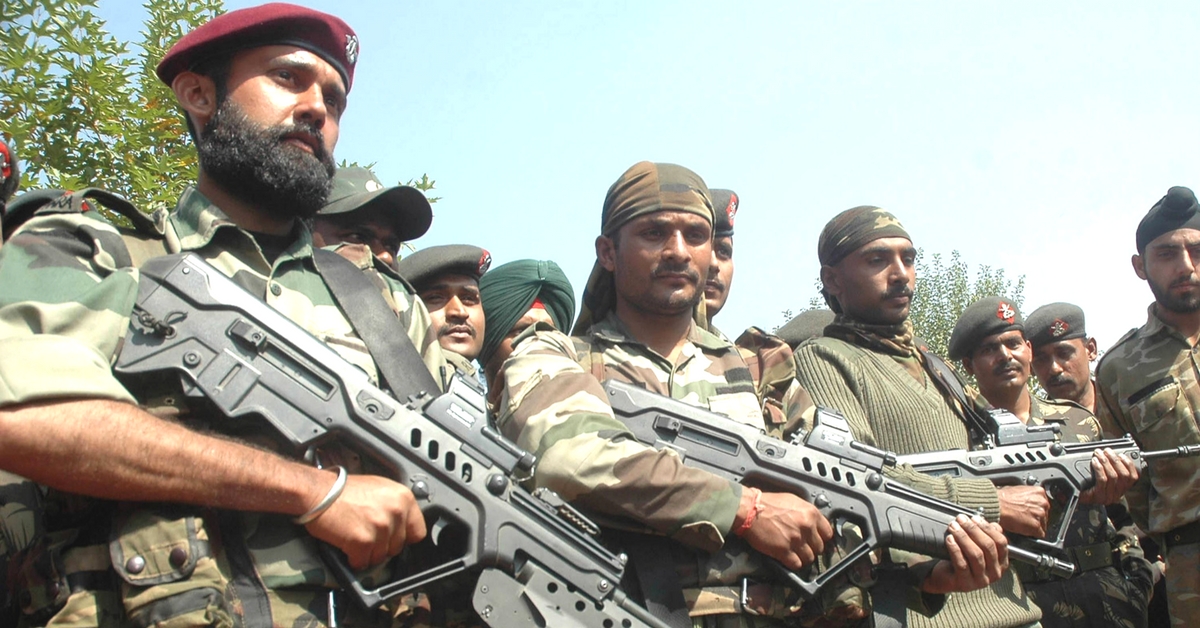India’s Armed Forced To Store DNA of ‘Highest Risk’ Personnel. Here’s Why
This is part of a larger exercise by the armed forces to develop a DNA repository of over a million personnel.

Personnel on the frontlines of India’s defences always run the risk of death. It is an occupational risk and cannot be avoided.
In a bid to identify 7000 armed forces personnel “at the highest risk of death,” the Indian armed forces have collected and stored their DNA at a profiling centre in the Department of Forensic Science and Toxicology, Armed Forces Medical College (AFMC), Pune.
Speaking to The Indian Express, Lieutenant General Bipin Puri, the Director General of the Armed Forces Medical Services, said that the 7000 personnel “at the highest risk of death” or ‘priority 1,’ include NSG commandos, submariners, naval aviators, fighter pilots and army aviators.
The armed forces have collected their DNA samples and stored it at the profiling in AFMC. Under a tight cover of security, these samples will be preserved and barcoded to generate the necessary DNA profiles in the event that they want to identify a soldier killed in action.
This is part of a larger exercise by the AFMC to develop a DNA repository of 11,30,000 armed forces personnel. Senior officials state that these DNA samples are being collected and stored in a phased and systematic manner.

DNA profiling has already proven its worth by helping the armed forces identify air force personnel killed in air crashes last year. Lieutenant Puri presented the example of how stored DNA samples at the AFMC helped the Indian Air Force identify the defence personnel who died during the Su-30 MKI aircraft crash on May 23, 2017.
Read also: An Armed Forces Veteran on the Honour and Dignity of Serving One’s Country
“The remains recovered from the crash site included a shoe with an identity tag, a wallet with credit and debit cards, and a portion of the left hand. DNA samples of both pilots had been preserved at the repository at AFMC,” said Lt Gen Puri to The Indian Express.
The biological remains from the site of this tragedy and DNA samples preserved at the AFMC were used by the Centre for DNA Fingerprinting and Diagnostics in Hyderabad to positively identify one deceased pilot.
Read also: Operation Cactus: When India’s Armed Forces Helped The Maldives
DNA profiling is the most accurate way to determine the identity of a deceased soldier, especially when the remains are excessively disfigured. As part of the AFMC exercise to collect and store DNA sample, 170 medical officers have reportedly received the necessary training to carry it out in a phased manner. By October 2018, the aim is to generate DNA profiles of as many as 625 personnel.
Like this story? Or have something to share? Write to us: [email protected], or connect with us on Facebook and Twitter.
NEW: Click here to get positive news on WhatsApp!
This story made me
- 97
- 121
- 89
- 167
Tell Us More
We bring stories straight from the heart of India, to inspire millions and create a wave of impact. Our positive movement is growing bigger everyday, and we would love for you to join it.
Please contribute whatever you can, every little penny helps our team in bringing you more stories that support dreams and spread hope.


















